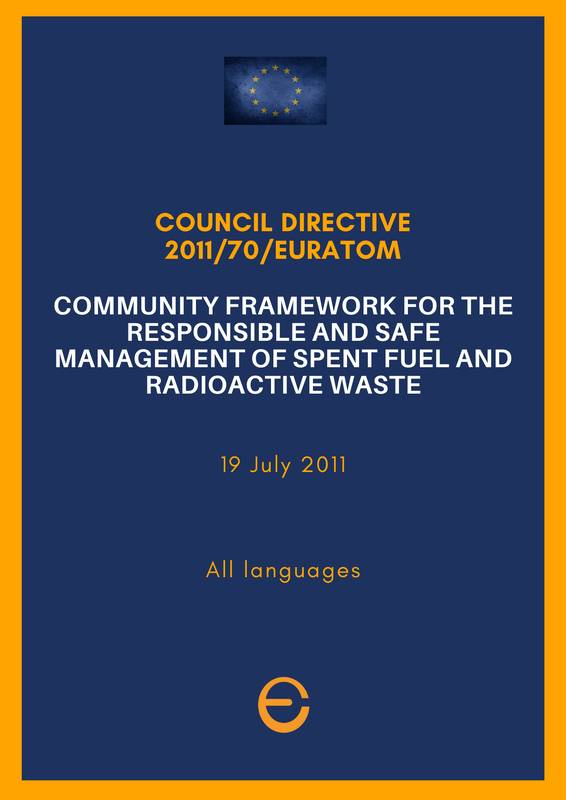Radioactive waste
Radioactive waste is mainly generated from the production of electricity in nuclear power plants or for the production of radioactive materials for medical, research, industrial and agricultural purposes.
All EU countries produce radioactive waste and 20 of them also manage spent fuel on their territory.
Given the radiological properties and the potential danger of all these wastes, the EU has put in place rules and behaviors to effectively isolate them.
It requires containment and isolation from humans and the living environment over a long period of time.
There are very low, low and high radioactivity waste isolation sites and the EU has established a set of mandatory standards in all Member States.
The EU rules on radioactive waste and spent fuel
|
The EU's Radioactive Waste and Spent Fuel Management Directive 2011/70/Euratom requires that:
|
Related Documents
- Report on progress of implementation of Council Directive 2011/70/Euratom and an inventory of radioactive ewaste and spent fuel present in the Community's territory and the future prospect COM (2019) 362 final
- Progress of implementation of Council Directive 2011/70/Euratom, accompanying the report above SWD(2019) 436 final
- Inventory of radioactive waste and spent fuel present in the Community's territory and the future prospect, accompanying the report above SWD(2019) 435 final
- Euratom report on the implementation of the Joint Convention - Sixth Review Meeting of the Contracting Parties (2018)
- Consolidated version of the Euratom Treaty (2012/C 327/01)
- Directive on the Management of Radioactive Waste and Spent Fuel 2011/70/EURATOM
- Reports adopted before 2018


